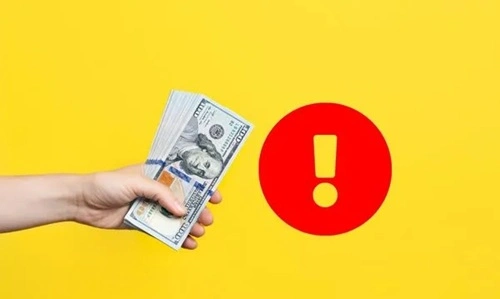Cashing a check seems simple—but what happens if you accidentally (or intentionally) cash the same check twice? In the eyes of the law, that’s no small mistake. In the United States, cashing a check twice can lead to criminal charges, including fraud, theft, or forgery. Depending on the circumstances and the amount involved, you can absolutely go to jail for it. Here’s what you need to know about how the law treats “double depositing” or “check fraud,” and how to avoid serious legal trouble.

What It Means to Cash a Check Twice
Cashing a check twice typically happens in one of two ways:
a) Depositing the same check electronically and then in person.
For example, you deposit a check using your banking app, then forget and cash it at a physical branch.
b) Depositing a check at two different financial institutions.
You might deposit the same paper check into two separate accounts—one at Bank A and one at Bank B.
If this happens accidentally and you promptly notify your bank, it’s usually handled as a banking error. But if it’s done knowingly or repeatedly, it becomes criminal fraud.
When It Becomes a Crime
Under U.S. law, intentionally cashing or depositing a check twice is a form of check fraud, which falls under both state and federal statutes. Fraud occurs when someone knowingly uses deceit or misrepresentation to obtain money or property that doesn’t belong to them.
Common criminal charges include:
- Check Fraud or Bank Fraud – making or presenting a false or altered financial instrument.
- Theft by Deception – obtaining money through dishonest means.
- Forgery – if someone alters or duplicates a check to cash it again.
Federal law (18 U.S.C. § 1344) makes it a crime to “knowingly execute or attempt to execute a scheme to defraud a financial institution.” Violating this statute can result in up to 30 years in federal prison and a $1,000,000 fine—especially if the scheme affects federally insured banks.
At the state level, penalties vary, but even a small check fraud case can be charged as a misdemeanor with up to one year in jail, while larger or repeated offenses can be felonies carrying 2 to 10 years or more in prison.
How Banks Detect Double Deposits
Modern banking systems are equipped with technology to detect duplicate deposits. When you cash or deposit a check, it’s scanned and stored in a central database accessible by financial institutions. If the same check number, amount, or image appears twice, the bank will flag it immediately.
Once discovered, the second deposit will usually be reversed—but if the money has already been withdrawn, the bank will likely report the matter to law enforcement. Even if you claim it was accidental, the bank’s fraud department or prosecutors will examine your intent and pattern of behavior.
Possible Legal and Financial Consequences
If you cash a check twice and authorities determine it was intentional, you could face:
- Criminal charges for fraud, forgery, or theft.
- Jail or prison time: Up to 1 year for misdemeanors or up to 30 years for federal bank fraud.
- Restitution: You’ll be required to pay back the money obtained through the double deposit.
- Permanent criminal record: Which can affect employment, credit, and housing opportunities.
- Civil lawsuits: The check issuer or bank may sue for damages or penalties.
Even if you avoid prosecution, the bank could close your account, place you on a fraud reporting list, or ban you from future banking services.
What to Do If You Made an Honest Mistake
Mistakes happen—especially with mobile banking. If you accidentally cash a check twice, the most important step is to contact your bank immediately. Explain the situation, provide documentation, and do not attempt to spend the extra funds. Quick, honest communication can often prevent the situation from escalating into a criminal case.
However, failing to report the error or attempting to hide it could show intent to defraud, which is when the situation turns serious.
Final Thoughts
So, can you go to jail for cashing a check twice? Yes—absolutely. If done intentionally, it’s considered a form of bank fraud or theft, punishable by significant fines and potential prison time. Even accidental double deposits can cause financial headaches and trigger investigations.
The safest course of action? Always verify your deposits, keep records, and never try to “double up” on a check—even as a short-term fix for cash flow. In the banking world, what might seem like a harmless mistake can easily become a felony.
In short: honesty and caution are your best defenses. When it comes to checks, one deposit is all the law allows.

Our dedicated team gathers information from all the reliable sources to make the law accessible and understandable for everyone. We provide the latest legal news stories from across the country, delivered straight to you.
